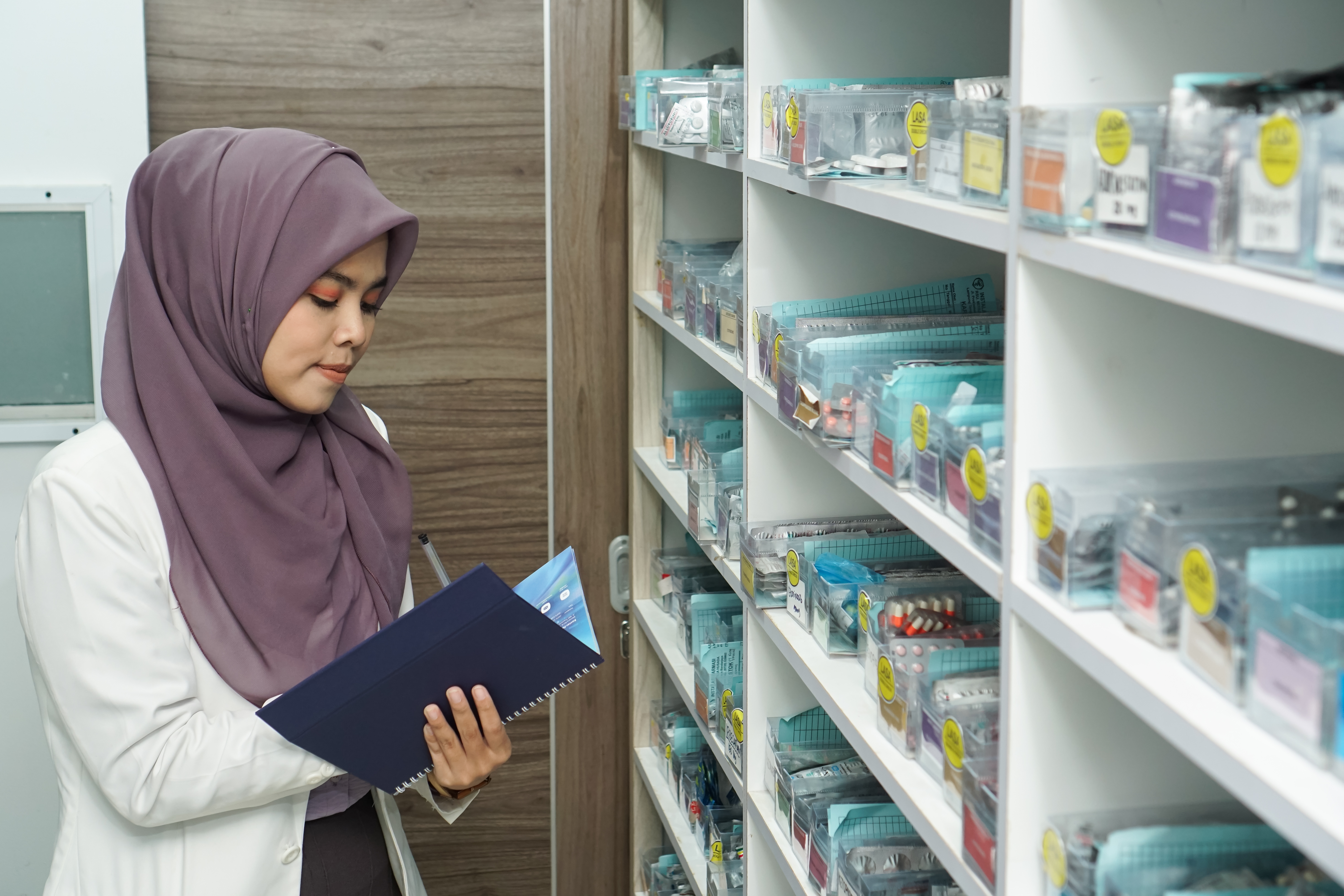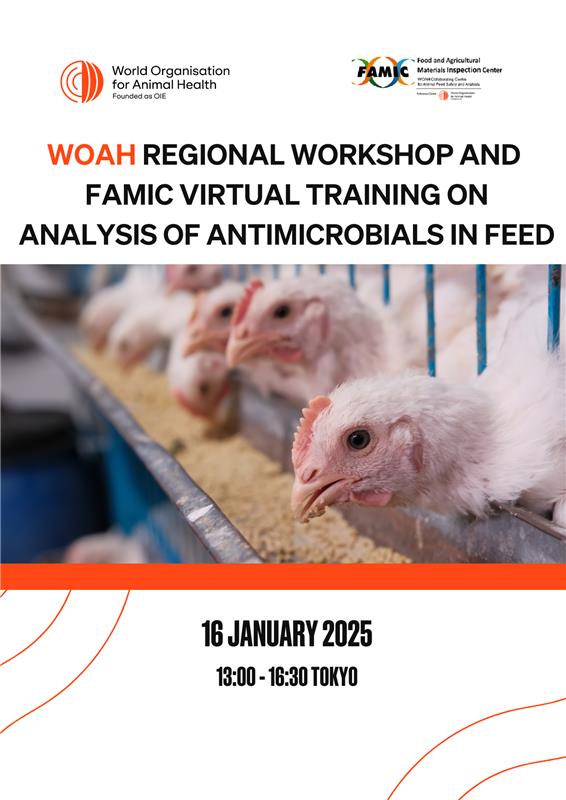
WOAH FAMIC collaboration on feed safety
Since animal feed plays a vital role in the global food industry as a key component of the food chain, ensuring its safety is essential, as it directly affects animal health, animal welfare, food safety, food security and trade, and human health. With the growing international distribution of feed, regional/global activities and collaboration related to animal health and the safety of animal products, including feed safety, are becoming increasingly important. However, the capacity to test feeds differs widely among WOAH Members in the Asia Pacific region.
The Food and Agricultural Materials Inspection Center (FAMIC) in Japan is the WOAH Collaborating Centre for Animal Feed Safety and Analysis. It has been contributing to that field through providing relevant expertise and supporting the development of relevant standards. To ensure feed safety, FAMIC regularly provides technical training on feed analysis to member countries/territories of the Asia-Pacific Region in collaboration with the WOAH Regional Representation for Asia and the Pacific (RRAP) through regional workshops.
At the 2nd OIE Regional Workshop on Animal Feed Safety held in 2019, recommendations were developed regarding feed safety for WOAH Members in the region, WOAH, and FAMIC. Based on these recommendations, FAMIC established a Laboratory Network on Animal Feed Safety in Asia and the Pacific. Furthermore, to address the needs of regional Members, a virtual training sequence was organized for laboratories responsible for feed safety on heavy metals in November 2021 and on pesticides in February 2023.
Workshop and Training in 2025
FAMIC conducted a questionnaire through the laboratory network to identify which analytical methods were most needed by participants, ensuring the training meets the specific needs of WOAH Members in the region. Based on questionnaire results, FAMIC organised technical training on the analysis of antimicrobials in feed, which was the most requested component in feed processing.
Unlike other harmful substances such as mycotoxins, antimicrobials are intentionally added to feed – to treat, control or prevent illnesses or as growth-promoters. Regulations around the use of antimicrobials in feed vary among WOAH Members and the ability to enforce related regulations also varies widely. To ensure feed safety through accurate management of antimicrobials used in feed, it is essential to learn appropriate analytical methods for measuring antimicrobial concentrations in feed.
Similar to the training sessions in 2021 and 2023, WOAH will organise a short workshop to facilitate information sharing before the training. WOAH plans to share key points from WOAH standards and guidance related to antimicrobial use in animal feed and findings from ANIMUSE and invite an expert and representatives from WOAH Members to share experiences.
The objectives of the workshop/training were:
(Jan 2025) Flyer for the WOAH regional workshop and FAMIC virtual training and analysis of antimicrobials in feed
Format: Virtual workshop (1.5 hours) and virtual training (2 hours)
Date: 16 January 2025, 13:00 – 16:30 (Japan Standard Time)
Participation: WOAH Members and other regional stakeholders (by invitation only)
Agenda and Presentations (including links to the training videos): Click here
WOAH/FAMIC Feed safety events
2019: Regional Workshop on Animal Feed Safety – WOAH – Asia
2023: FAMIC Virtual Training on Pesticides in Feed – WOAH – Asia
Laboratory Network
Laboratory Network on Animal Feed Safety in Asia and the Pacific


